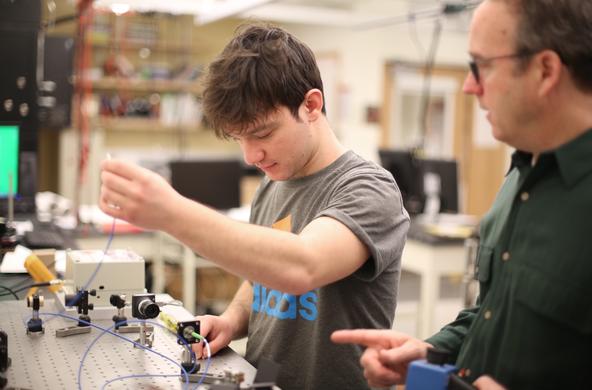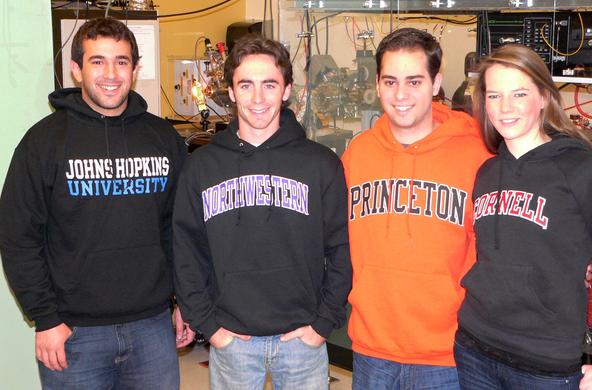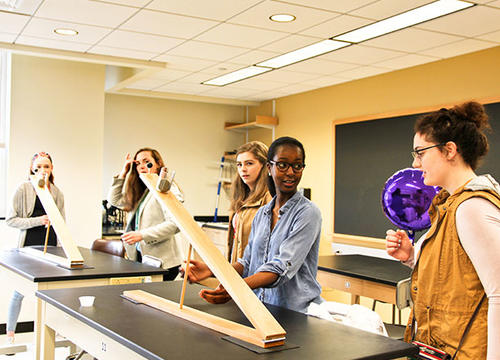The physics curriculum provides students with a thorough theoretical and experimental foundation in the principles of physics. Strengthened by exploration of the liberal arts, graduates of the program understand not just the science of physics, but also why it matters in today’s world.
With a low student-to-faculty ratio, physics students are assured of small classes and individual attention. In addition to regular course offerings, majors are able to take advantage of tutorials, independent studies, or supervised research with faculty members on topics related to their ongoing work. Members of the department are engaged in active research programs that cover a broad range of areas, including atomic physics, condensed matter physics, particle physics, and astrophysics. Graduates are prepared to pursue additional studies in physics, applied physics, engineering, medicine, or law; or entry-level positions in research, technology, business, teaching, and other fields.
Physics Diversity, Equity and Inclusion Statement
Program Highlights
Students gain knowledge in all the major areas of modern physics — including thermal physics, classical mechanics, electromagnetism, and quantum mechanics — through coursework frequently coupled with hands-on lab experience. Advanced electives offered by the department include:
- Optics with laboratory
- Electronics with laboratory
- Introduction to astrophysics
- Quantum Computing
- Advanced topics in physics

Take part in theoretical and experimental projects in astrophysics, atomic physics, condensed matter physics, and particle physics.

The 3-2 Program in Engineering provides the opportunity to combine the study of physics with training in engineering.

Find out what you can do with a physics major, and check out some recent grad school placements.
Physics News




